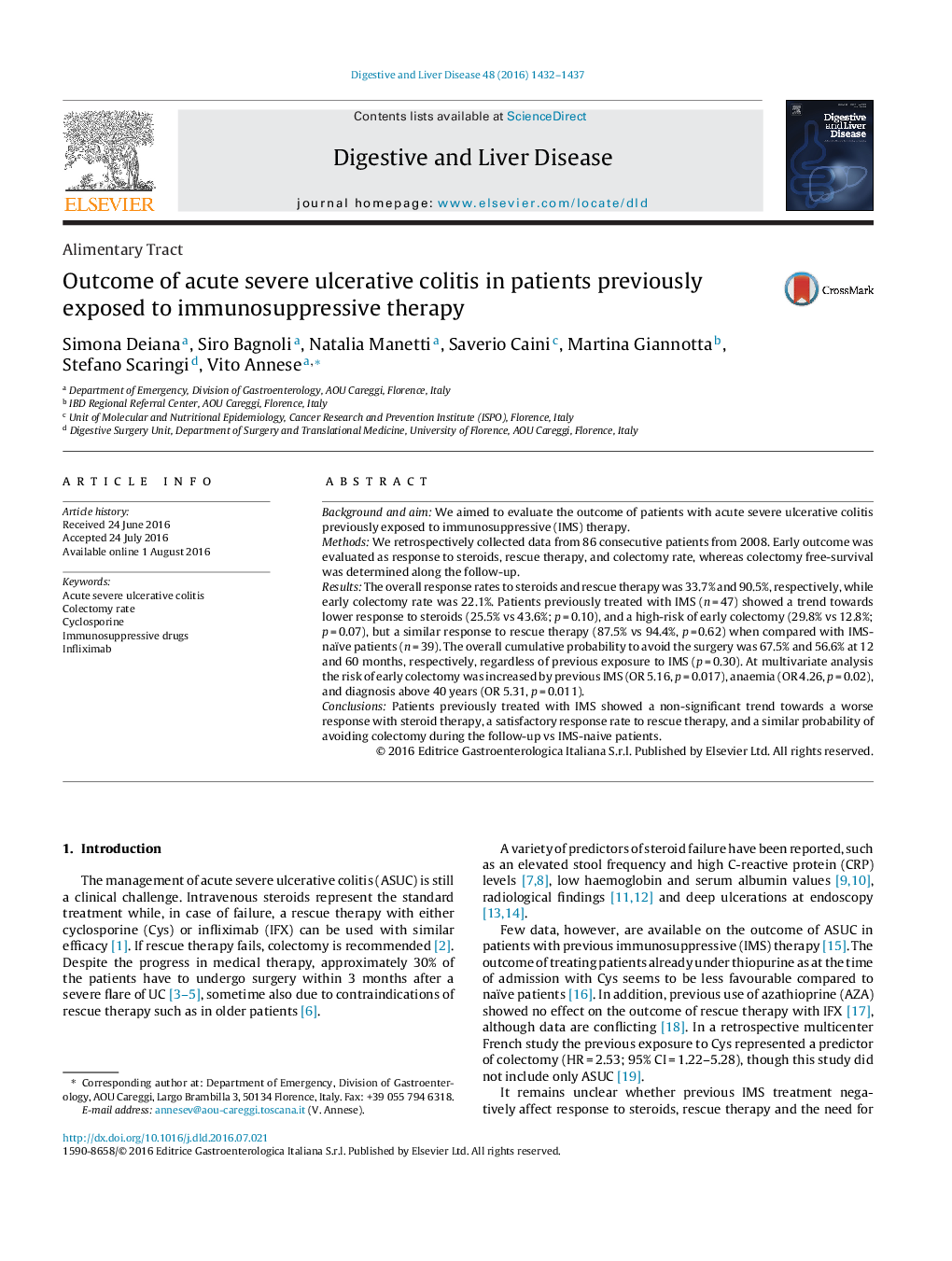| Article ID | Journal | Published Year | Pages | File Type |
|---|---|---|---|---|
| 5655398 | Digestive and Liver Disease | 2016 | 6 Pages |
Background and aimWe aimed to evaluate the outcome of patients with acute severe ulcerative colitis previously exposed to immunosuppressive (IMS) therapy.MethodsWe retrospectively collected data from 86 consecutive patients from 2008. Early outcome was evaluated as response to steroids, rescue therapy, and colectomy rate, whereas colectomy free-survival was determined along the follow-up.ResultsThe overall response rates to steroids and rescue therapy was 33.7% and 90.5%, respectively, while early colectomy rate was 22.1%. Patients previously treated with IMS (n = 47) showed a trend towards lower response to steroids (25.5% vs 43.6%; p = 0.10), and a high-risk of early colectomy (29.8% vs 12.8%; p = 0.07), but a similar response to rescue therapy (87.5% vs 94.4%, p = 0.62) when compared with IMS-naïve patients (n = 39). The overall cumulative probability to avoid the surgery was 67.5% and 56.6% at 12 and 60 months, respectively, regardless of previous exposure to IMS (p = 0.30). At multivariate analysis the risk of early colectomy was increased by previous IMS (OR 5.16, p = 0.017), anaemia (OR 4.26, p = 0.02), and diagnosis above 40 years (OR 5.31, p = 0.011).ConclusionsPatients previously treated with IMS showed a non-significant trend towards a worse response with steroid therapy, a satisfactory response rate to rescue therapy, and a similar probability of avoiding colectomy during the follow-up vs IMS-naive patients.
